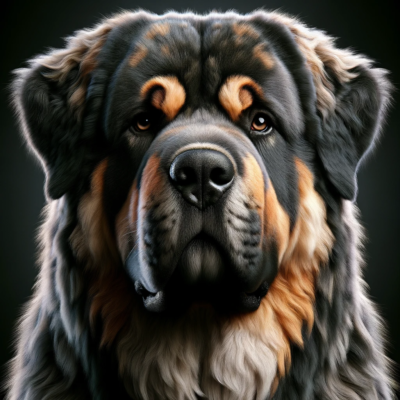If you’re an admirer of both Greece and dogs, then you’re in the right place. Welcome to a fascinating world of Greek dog breeds, a collection of canine companions that are as rich and varied as the culture of Greece itself. These breeds have played a significant role in Greek society, from the ancient times to the present, serving as loyal guardians, skilled hunters, and beloved pets.

In ancient Greece, dogs were considered sacred and were often portrayed in art and folklore. They were cherished and revered for their loyalty and courage, traits reflected in their depictions as companions of Greek Gods. These ancient Greek dog breeds have evolved over centuries, interacting with the varied landscapes and climates of Greece, and developing distinctive traits and abilities.
What sets Greek dog breeds apart? Well, besides their fascinating history, they are known for their unique physical and temperamental traits. From the robust and hardy Greek Shepherd, perfect for arduous mountain terrains, to the agile and tenacious Hellenikos Ichnilatis, renowned for its hunting prowess, each breed boasts unique characteristics. If you’re looking for a small breed with a big heart, let me introduce you to the adorable Kokoni, a native breed known for its affectionate nature.
Prepare to embark on a fantastic journey through time as we uncover the rich history of Greek dog breeds. This section offers a treasure trove of fascinating facts and insights that will surely delight dog lovers and history buffs alike.
Ancient Greek Dog Breeds
The ancient Greeks held dogs in high regard and they featured prominently in their mythology, literature, and art. Canines were seen as loyal companions, skilled hunters, and even divine entities. Now, let’s take a peek into the world of ancient Greek dog breeds
One of the oldest documented Greek dog breeds is the Molossus, a large, powerful breed that was used for guarding livestock and homes. The Molossus had a broad chest, strong body, and a fearless spirit. It’s believed to be the ancestor of many modern breeds such as the Mastiff and the Saint Bernard.
The Laconikos, another ancient Greek breed, was known for its speed and agility. Used primarily for hunting, these dogs were celebrated for their ability to catch hares and other small game. Their slender, graceful build and sharp senses made them excellent hunters.

Evolution and Development of Greek Dog Breeds
Over the centuries, Greek dog breeds have evolved and developed in response to changes in the environment and human needs. Selective breeding played a crucial role in shaping these breeds into the distinct varieties we know today.
The Greek Shepherd, or “Ellinikos Poimenikos”, is a perfect example of this. Once used to guard livestock in the rugged mountains of Greece, these dogs needed to be strong, resilient, and alert. Over time, they developed a thick double coat to withstand the cold and a sturdy body to navigate rocky terrains.
The Hellenikos Ichnilatis, on the other hand, is an evolved form of the ancient hare hunting Laconikos. Sporting a lean body and keen senses like its ancient counterpart, the modern Hellenikos Ichnilatis is a highly regarded hunting dog in Greece, known for its speed, endurance, and sharp tracking skills.
And let’s not forget the charming Kokoni, a small companion dog that has captured the hearts of many Greek families. Its history traces back thousands of years, evolving from a small hunting dog to a beloved household pet. The Kokoni’s endearing temperament and adorable appearance are a testament to the careful breeding practices that have shaped this breed.
As you can see, the history of Greek dog breeds is a captivating tapestry of change and evolution. Whether they were bred for guarding, hunting, or companionship, each breed carries a piece of Greek history, reflecting the country’s diverse landscape and rich culture. It’s no wonder that these dog breeds, each unique in their way, continue to be celebrated in Greece and beyond.
Characteristics Common in Greek Dog Breeds
Despite the diverse range of dog breeds native to Greece, certain physical and temperamental traits are discernibly present across many of these dogs. Understanding these traits can help prospective dog owners decide if a Greek dog breed aligns with their lifestyle, and can also provide insights into the history and evolution of these breeds.
Physical Traits
Dog breeds of Greek origin often exhibit a robust physique, built for the rugged terrains of Greece. They frequently have medium to large builds, showing off their endurance and strength. However, exceptions do exist, such as the dainty and small-sized Kokoni.
Their coat types vary from breed to breed, ranging from short and sleek, like the Hellenikos Ichnilatis, to thick and dense, like the Greek Shepherd. This diversity in coat type is indicative of the various climates these breeds have adapted to. It’s also worthy of note that most Greek dog breeds have a double coat, providing them with ample protection against weather conditions.
Common coat colors include black, white, and various shades of brown. Some Greek breeds, like the Kokoni, might also sport a mix of these colors.
Temperamental Traits
When it comes to temperament, Greek dog breeds are known for their loyalty, intelligence, and vigilance. Many of these breeds were historically used for guarding livestock or premises, and these traits continue to shine through today. Greek Shepherds, for instance, are famous for their protective nature and are often quite wary of strangers, making them excellent guard dogs.
Despite their protective instincts, most Greek dogs are also very social and loving with their families. They are known to forge deep bonds with their human companions and show a great deal of affection. The Kokoni, in particular, is famous for its love of human companionship and its joyful, lively temperament.
Greek dog breeds are also known for their intelligence and trainability. The Hellenikos Ichnilatis, commonly used as a hunting dog, is a prime example of this. These dogs are known for their sharp problem-solving abilities and their eagerness to learn and follow commands.
In summary, Greek dog breeds offer a fascinating mix of traits, from their physical characteristics shaped by Greece’s diverse landscapes, to their temperaments molded by centuries of companionship with humans. These dogs are not just a testament to Greece’s rich history, but also to the enduring bond between humans and their canine companions.
List of Greek Dog Breeds
When it comes to Greek dog breeds, a few standout names come to mind. These breeds, each with their unique features and distinctive traits, have earned their place in the rich tapestry of Greek canine heritage.
The Greek Shepherd
One of the most notable dog breeds from Greece is the Greek Shepherd. As a mountain dog breed, they are known for their large, robust physique, typically weighing between 70 to 110 pounds. Their fur is dense and double-coated, usually black or fawn with potential white markings. Greek Shepherds are renowned for their courage, tenacity, and loyalty. Their keen senses and protective nature make them excellent guard dogs, especially for livestock.
The Hellenikos Ichnilatis
Next on the list is the Hellenikos Ichnilatis, also known as the Greek Harehound. This breed is distinguished by its muscular build, short black and tan coat, and distinctive ‘hound’ look. They are primarily hunting dogs, with a strong sense of smell and an innate chasing instinct. Despite their hunting prowess, Hellenikos Ichnilatis dogs are known to be friendly, sociable, and generally good with kids.
The Kokoni
The Kokoni, translating to ‘little dog’ in Greek, is a small companion breed. They typically weigh between 6 to 9 kilograms and have a curly, medium-long coat that can come in various colors. Known for their vibrant and affectionate personalities, these dogs are incredibly loyal to their families. They are also quite agile and active, making them great playmates.
The Alopekis
The Alopekis is another native Greek dog breed that is small in size, typically weighing between 3 to 6 kilograms. They sport a short or semi-long coat which can be of any color. The Alopekis has a friendly, sociable temperament and is highly intelligent, making them easy to train.
The Molossus of Epirus
The Molossus of Epirus is a large breed, often weighing over 100 pounds. They have a strong, muscular build and a short coat that comes in either black or fawn. This breed is known for its protective nature, making them excellent guard dogs. Their loyalty and bravery have made them respected and revered throughout Greece.
Each of these types of Greek dogs carries a unique charm and persona, an embodiment of the culture and history they represent. Whether you’re looking for a steadfast protector, a lively companion, or a skilled hunting partner, Greek breeds offer a wonderful variety to choose from.

The Greek Shepherd: A True Greek Legend
When discussing Greek dog breeds, it’s impossible to overlook the Greek Shepherd, a breed that carries the essence of ancient Greece in its genes. This breed, also known as the Hellenic Shepherd, is a true Greek legend, with a history as fascinating as the country itself.
History and Origin of the Greek Shepherd
The Greek Shepherd is a breed that has been around for centuries, with its roots tracing back to the rugged mountainous regions of Greece. It was initially bred for its herding abilities, and it soon became an integral part of Greek rural life. The breed was essential for protecting livestock from predators, thanks to its strong protective instincts and formidable size.
Despite its long history, the Greek Shepherd is not internationally recognized as a distinct breed. This is largely due to the breed’s isolated development in the remote regions of Greece, away from the influence of other breeds. However, within Greece, the breed is highly valued and well-respected for its hardiness, loyalty, and work ethic.
Characteristics and Traits of the Greek Shepherd
Physically, the Greek Shepherd is a large, robust breed, with males standing up to 75 cm tall and weighing up to 50 kg. Females are slightly smaller but equally as sturdy. The breed is characterized by its dense double coat, which is usually black or fawn in color, although other color variations can occur.
The Greek Shepherd is a breed that is as beautiful on the inside as it is on the outside. Known for their loyalty, these dogs form strong bonds with their families and are known to be protective, making them excellent guard dogs. They are also highly intelligent and adaptable, with an ability to learn quickly and work in various environments.
However, the Greek Shepherd is not a breed for everyone. They require a lot of physical and mental stimulation, and without it, they can become bored and potentially destructive. They are best suited to active families who have the time and energy to meet their needs.
In terms of health, Greek Shepherds are generally healthy dogs with a lifespan of around 12 years. However, like all large breeds, they can be prone to certain health issues such as hip dysplasia and bloat. Regular vet check-ups and a balanced diet can help to prevent these issues and ensure that your Greek Shepherd lives a long and healthy life.
The Greek Shepherd is a breed that is deeply intertwined with the history and culture of Greece. Its strength, loyalty, and intelligence make it a truly remarkable breed, and one that is deserving of recognition and respect. Whether as a working dog or a family pet, the Greek Shepherd is a testament to the rich canine heritage of Greece, and a breed that is a true Greek legend.
The Hellenikos Ichnilatis: Greece’s Renowned Hare Hunter
History and Origin of the Hellenikos Ichnilatis
The Hellenikos Ichnilatis, also known as the Greek Harehound, holds a distinguished place amongst the Greek dog breeds. This breed enjoys a rich and extensive history in Greece, tracing its roots back to the ancient times. The breed’s name, Hellenikos Ichnilatis, translates to ‘Greek Tracker’, a reference to their superb tracking abilities honed over centuries of hunting in the rugged Greek terrain.
The breed is said to have descended from Laconikoi Kynes, the ancient Greek hunting dogs. These dogs were known for their bravery, tenacity, and excellent scenting skills, traits that are still prominent in the Hellenikos Ichnilatis today. Despite their long history, it wasn’t until 1996 that the breed was officially recognized by the Federation Cynologique Internationale.
Characteristics and Traits of the Hellenikos Ichnilatis
The Hellenikos Ichnilatis is most noted for its striking appearance and robust physique. A medium-sized breed, the Hellenikos Ichnilatis boasts a muscular and well-proportioned body, highlighting its agility and strength. The breed typically has a rich black and tan coat, with a dense, short, and straight fur that provides protection against harsh weather conditions.
In terms of temperament, the Hellenikos Ichnilatis is courageous, active, and friendly. Known for their loyalty, these dogs form strong bonds with their human families and thrive best in a home environment where they receive regular interaction and exercise. However, their hunting instincts are still very much intact, making them excellent watchdogs who aren’t afraid to protect their territory.
The Hellenikos Ichnilatis is also known for its keen sense of smell and is an accomplished scent tracker. This makes them an excellent choice for those interested in participating in hunting or tracking activities with their dog. They are intelligent animals that learn quickly, but their strong prey drive can sometimes make them a challenge to train.
Despite their robust exterior, the Hellenikos Ichnilatis is generally a healthy breed, though like many Greek dog breeds, they can be prone to certain genetic health conditions. Regular check-ups with the vet and a balanced diet are essential to ensure these dogs live a healthy life.
In conclusion, the Hellenikos Ichnilatis is an impressive representative of the Greek dog breeds, embodying the spirit and history of Greek canine lineage. Their faithful companionship, combined with their hunting prowess, make them a truly unique and remarkable breed.

Greek Dog Breeds: Celebrating Greece’s Legendary Canine Companions – The Kokoni: The Little Dog with a Big Heart
When it comes to Greek dog breeds, one small but mighty breed that often steals hearts is the beloved Kokoni. Its name means ‘small dog‘ in Greek, and this breed is indeed a little bundle of joy with a big heart.
History and Origin of the Kokoni
The Kokoni is an ancient breed with a history that can be traced back to ancient Greece. These dogs were often depicted in Greek art and pottery, signifying their importance in Greek society. The breed has been cherished by the Greeks for centuries for its remarkable adaptability and affectionate nature. Despite its long history, the Kokoni remains relatively unknown outside of Greece, but those who have encountered the breed can attest to its charming qualities.
Characteristics and Traits of the Kokoni
The Kokoni typically stands between 9 to 12 inches tall at the shoulder and weighs anywhere from 6 to 9 kilograms. It has a short to medium-length coat that comes in a variety of colors including white, black, brown, and a mix of these. This breed is recognized by its expressive eyes, often giving the dogs a kind and intelligent expression.
However, the Kokoni’s appeal isn’t just skin deep. This breed is renowned for its vivacious personality. These dogs are exceptionally affectionate and friendly, making them great companions. They are also quite intelligent and agile, traits that make them excellent at agility and obedience training.
Kokonis are highly adaptable dogs. They are as comfortable living in an apartment as they are in a house with a yard. They thrive on human interaction and get along well with other pets, making them a great choice for families.
Due to their small size, Kokonis don’t require a large amount of exercise, but they are quite energetic and will enjoy regular walks and playtime. They are also known to be quite vocal, often alerting their owners to any new visitors or unusual occurrences.
The Kokoni is truly a breed that is easy to love. Its size makes it manageable, its adaptability makes it a joy to live with, and its affectionate nature makes it a loyal and loving companion. Whether you’re a single pet parent or have a large family, the Kokoni could just be the perfect addition to your home.
In terms of health, Kokonis are generally a healthy breed, but like all breeds, they are prone to certain health conditions. Regular vet check-ups and a balanced diet can ensure your Kokoni leads a happy and healthy life.
Caring for Greek Dog Breeds
Caring for dog breeds from Greece isn’t much different from caring for other dogs. However, there are a few unique aspects that you should consider due to their particular characteristics and health tendencies.
General Care and Maintenance
Whether you have a Greek Shepherd’s massive frame or a Kokoni’s small size, a common feature among these breeds is their active and energetic nature. They require regular exercise to keep them physically fit and mentally stimulated. Games, walks, or a good run in the backyard can do wonders.
Greek dog breeds also come with different types of coats. While the Greek Shepherd has a thick fur coat that needs regular brushing to prevent matting and tangling, the Kokoni has a shorter coat that requires less grooming. Regardless of the breed, regular grooming is beneficial for their hygiene and also gives you a chance to check for any irregularities like lumps or skin issues.
Feeding is another essential part of care. Providing a balanced diet according to their size, age, and activity level is crucial. Remember, an obese dog can face many health issues, so watch their diet and ensure they get plenty of exercises.
Health Issues Common in Greek Dog Breeds
Like all dog breeds, certain health challenges are more common in Greek dog breeds. The Greek Shepherd, given its large size, can be prone to hip dysplasia, a condition affecting the joint’s fit and function. Regular vet check-ups and a good diet can help manage this condition.
On the other hand, smaller breeds like the Kokoni generally have a longer lifespan and face fewer health issues. However, they may still be prone to general small dog concerns such as dental problems and obesity if overfed.
The Hellenikos Ichnilatis, being a robust and hardy breed, generally has fewer health issues, but regular veterinary check-ups remain vital.
Understanding the common health issues associated with your Greek dog breed will help you better care for them and ensure they have a long, healthy, and happy life. It’s essential to keep a close relationship with your vet and keep up with regular vaccinations and check-ups.
The journey with your Greek-origin companion will be filled with joy, companionship, and at times, challenges. The Greek dog breeds, with their rich history and diverse characteristics, make a wonderful addition to any home. What they require is your love, care, and respect for their unique needs and attributes. In return, they will shower you with unparalleled loyalty, affection, and lots of fun moments. Here’s to a wonderful journey with your Greek canine companion, filled with love and shared adventures!
Frequently Asked Questions
Q1: What are some popular Greek dog breeds?
A1: Some popular Greek dog breeds include the Greek Shepherd, the Greek Harehound, the Cretan Hound, and the Kokoni.
Q2: Are Greek dog breeds suitable for families with children?
A2: Yes, most Greek dog breeds are known for their friendly and protective nature, making them suitable for families with children. However, it’s always important to supervise interactions between dogs and young children.
Q3: How do I care for a Greek dog breed?
A3: Greek dog breeds, like all dogs, require regular exercise, a balanced diet, and regular vet check-ups. Some breeds may have specific care requirements due to their size, coat type, or breed-specific health issues.
Q4: Are Greek dog breeds easy to train?
A4: Trainability can vary among Greek dog breeds. Some breeds, like the Greek Shepherd, are known for their intelligence and can be quite trainable, while others may require a bit more patience and consistency.
Q5: Where can I adopt a Greek dog breed?
A5: You can adopt a Greek dog breed from a reputable breeder or a rescue organization. It’s important to do your research to ensure that you’re adopting from a reputable source that prioritizes the health and well-being of their dogs.
Dr. Candy, a holistic veterinarian and certified raw dog food nutrition specialist, graduated from Oklahoma State University in 2009 with a DVM and has since specialized in companion animal nutrition, advocating for species-specific diets. With a background in wildlife rehabilitation and oil spill response, she combines holistic health and conventional medicine in her unique approach to treating chronic diseases, allergies, and autoimmune conditions in pets. As the owner of a veterinary practice in Colorado and an author, Dr. Candy is dedicated to educating pet parents and improving the health and happiness of animals.




